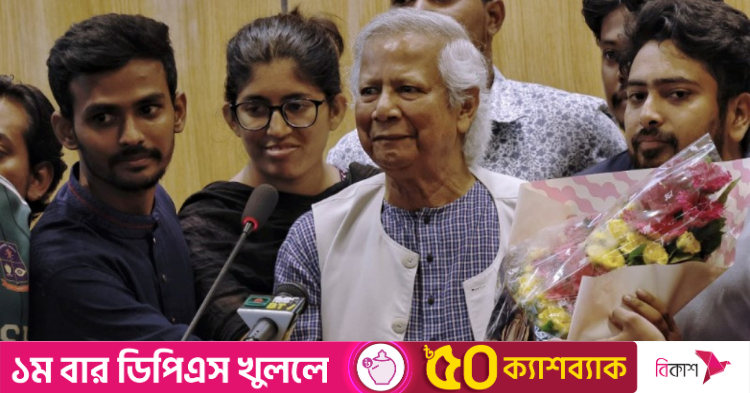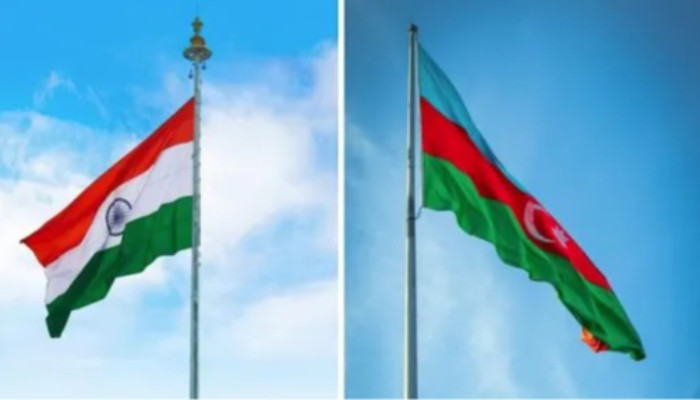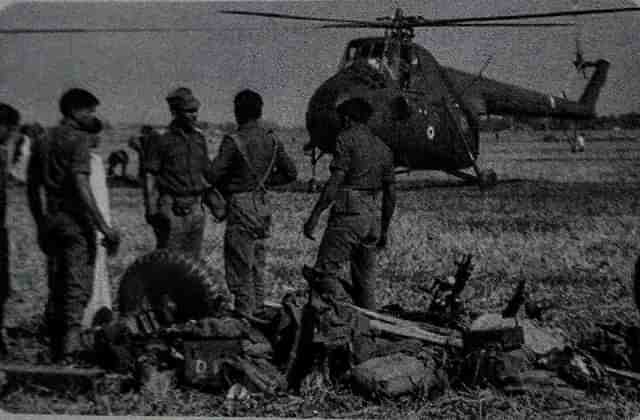[🇧🇩] Monitoring Bangladesh's Economy
- By Saif
- Bangladesh Trade & Industry
- 403 Replies

The country facing an economic imbroglio
The country's economic growth projection measured in terms of Gross Domestic Product (GDP) in the current fiscal year has been revised downwards to 3.8 per cent by the global lender, the International Monetary Fund (IMF). A review mission of the multilateral lending agency in a statement during its
The country facing an economic imbroglio
SYED FATTAHUL ALIM
Published :
Dec 22, 2024 22:12
Updated :
Dec 22, 2024 22:12

The country's economic growth projection measured in terms of Gross Domestic Product (GDP) in the current fiscal year has been revised downwards to 3.8 per cent by the global lender, the International Monetary Fund (IMF). A review mission of the multilateral lending agency in a statement during its visit last week came up with the revised GDP growth projection. This is the country's lowest growth projection since FY (2019-20), the pandemic year, when the GDP growth was 3.4 per cent. Notably, in October, IMF projected that the nation's economic growth would be 4.5 per cent, which was a reduction by 2.1 percentage points from June's projection at 6.6 per cent.
The reasons cited this time for the low growth were similar to those pointed out by the IMF delegation during its October visit that include political instability, high inflation, unrest in industries, floods that struck the country in the third week of August this year, etc. However, another major contributor to the economy's lack of growth is the central bank's raised policy rate (the rate of interest at which the BB lends money to the commercial banks). In consequence, the commercial banks have increased lending rate which is impacting business negatively. The objective of the BB's increasing policy rate is to rein in inflation at the advice of the IMF which made borrowing costlier resulting in less money circulating in the market. Termed contractionary monetary policy, the measure has been taken as a condition of the loan amounting to US$4.7 billion that the multilateral lender approved for Bangladesh in January 2023.
The IMF loan aims to bring macroeconomic stability in the economy in the long run. However, in the short run, it is dampening investment and business. Understandably, the business community is blaming the IMF's various conditions against the loan it (IMF) advanced and suggestions made to the government for its woes. Especially, the multilateral lender's suggestion of adjusting gas and fuel oil prices with those in the international market, which businesses think will render business costlier. Also, they fear, the IMF's idea of leaving the exchange rate of US dollar entirely to the mercy of the market would turn it volatile as black market operators and speculators might take undue advantage of the decision. Ultimately, that would seriously affect external trade, they believe. These are definitely genuine concerns of business people. But what needs also to be taken into account is that even before receiving the IMF loan, the business activities had already been under stress due to the restrictions on import that the previous government had opted for as part of its austerity policy. Obviously, that affected the import of raw materials, capital goods and other inputs for business and the industry. One cannot be oblivious of the fact that the austerity policy was adopted to save the foreign exchange reserve from depleting faster and avoid facing the Sri Lanka syndrome. In 2022 Sri Lanka experienced an economic meltdown in which the country's foreign exchange reserve hit rock bottom for various reasons including overdependence on debt, weak export, impact of Covid-19 on tourism, a mainstay of its foreign exchange earning and so on. Definitely, that caused business to suffer immensely. Against this backdrop, the previous government sought the IMF loan to stabilise the economy, knowing full well that it would be a bitter pill to swallow, if only for the greater good of the ailing economy. One may recall that at that time the economy was in a shambles, thanks to the overall mismanagement of the economy, fragility of the financial sector due to rampant looting of the banks and other financial institutions, unrestrained rise in bad loans in the banks with the connivance of the banking regulator (the BB) and the powers that be.
So, to restore some semblance of discipline in the financial sector and assure prospective investors from abroad that it was yet not all over with Bangladesh's economy the IMF loan was asked for. It is this legacy that the deposed government has left for the interim government to grapple with. As a result, it is not only the business community, the common people, who are the overwhelming majority are suffering. Food inflation rate in November was 13.80 per cent, while the inflation at 11.38 per cent in November is a record four-month high. The international lender said the inflation would remain around 11 per cent throughout the rest of the current fiscal year with the hope that it would come down to 5.0 per cent in FY 2026. The lender believes it would be due to tight monetary policy and easing of supply pressures. But still uncertainties would remain. Clearly, Bangladesh economy is in a fix. What is the way out? Return to the earlier state of free fall or continue the IMF-prescribed policy? True, there are critiques of IMF's loan conditionalities that put restrictions on the recipient country's fiscal and monetary policies leading to shrinking of public and private investments. Decline in private investment means rise in unemployment. But when a national currency's, or for that matter, economy's, worth is measured in US dollar as reserve currency, weak economies like Bangladesh face such a dilemma. Even so, the government could still negotiate with the IMF authorities on issues like if the exchange rate of USD against Taka should be left entirely to the market or the existing limits in line with the crawling peg system should continue. Also, the IMF-prescribed classification and labelling of the Non-Performing Loan (NPL) is also an issue. Notably, now a loan will be considered a default one, if the borrower fails to clear the debt within 90 days of its last date of repayment.
The government will be required to address these urgent issues through talks with the IMF so that some stringent conditions could be, where possible, relaxed for the sake of the businesses affected by the rules.
SYED FATTAHUL ALIM
Published :
Dec 22, 2024 22:12
Updated :
Dec 22, 2024 22:12
The country's economic growth projection measured in terms of Gross Domestic Product (GDP) in the current fiscal year has been revised downwards to 3.8 per cent by the global lender, the International Monetary Fund (IMF). A review mission of the multilateral lending agency in a statement during its visit last week came up with the revised GDP growth projection. This is the country's lowest growth projection since FY (2019-20), the pandemic year, when the GDP growth was 3.4 per cent. Notably, in October, IMF projected that the nation's economic growth would be 4.5 per cent, which was a reduction by 2.1 percentage points from June's projection at 6.6 per cent.
The reasons cited this time for the low growth were similar to those pointed out by the IMF delegation during its October visit that include political instability, high inflation, unrest in industries, floods that struck the country in the third week of August this year, etc. However, another major contributor to the economy's lack of growth is the central bank's raised policy rate (the rate of interest at which the BB lends money to the commercial banks). In consequence, the commercial banks have increased lending rate which is impacting business negatively. The objective of the BB's increasing policy rate is to rein in inflation at the advice of the IMF which made borrowing costlier resulting in less money circulating in the market. Termed contractionary monetary policy, the measure has been taken as a condition of the loan amounting to US$4.7 billion that the multilateral lender approved for Bangladesh in January 2023.
The IMF loan aims to bring macroeconomic stability in the economy in the long run. However, in the short run, it is dampening investment and business. Understandably, the business community is blaming the IMF's various conditions against the loan it (IMF) advanced and suggestions made to the government for its woes. Especially, the multilateral lender's suggestion of adjusting gas and fuel oil prices with those in the international market, which businesses think will render business costlier. Also, they fear, the IMF's idea of leaving the exchange rate of US dollar entirely to the mercy of the market would turn it volatile as black market operators and speculators might take undue advantage of the decision. Ultimately, that would seriously affect external trade, they believe. These are definitely genuine concerns of business people. But what needs also to be taken into account is that even before receiving the IMF loan, the business activities had already been under stress due to the restrictions on import that the previous government had opted for as part of its austerity policy. Obviously, that affected the import of raw materials, capital goods and other inputs for business and the industry. One cannot be oblivious of the fact that the austerity policy was adopted to save the foreign exchange reserve from depleting faster and avoid facing the Sri Lanka syndrome. In 2022 Sri Lanka experienced an economic meltdown in which the country's foreign exchange reserve hit rock bottom for various reasons including overdependence on debt, weak export, impact of Covid-19 on tourism, a mainstay of its foreign exchange earning and so on. Definitely, that caused business to suffer immensely. Against this backdrop, the previous government sought the IMF loan to stabilise the economy, knowing full well that it would be a bitter pill to swallow, if only for the greater good of the ailing economy. One may recall that at that time the economy was in a shambles, thanks to the overall mismanagement of the economy, fragility of the financial sector due to rampant looting of the banks and other financial institutions, unrestrained rise in bad loans in the banks with the connivance of the banking regulator (the BB) and the powers that be.
So, to restore some semblance of discipline in the financial sector and assure prospective investors from abroad that it was yet not all over with Bangladesh's economy the IMF loan was asked for. It is this legacy that the deposed government has left for the interim government to grapple with. As a result, it is not only the business community, the common people, who are the overwhelming majority are suffering. Food inflation rate in November was 13.80 per cent, while the inflation at 11.38 per cent in November is a record four-month high. The international lender said the inflation would remain around 11 per cent throughout the rest of the current fiscal year with the hope that it would come down to 5.0 per cent in FY 2026. The lender believes it would be due to tight monetary policy and easing of supply pressures. But still uncertainties would remain. Clearly, Bangladesh economy is in a fix. What is the way out? Return to the earlier state of free fall or continue the IMF-prescribed policy? True, there are critiques of IMF's loan conditionalities that put restrictions on the recipient country's fiscal and monetary policies leading to shrinking of public and private investments. Decline in private investment means rise in unemployment. But when a national currency's, or for that matter, economy's, worth is measured in US dollar as reserve currency, weak economies like Bangladesh face such a dilemma. Even so, the government could still negotiate with the IMF authorities on issues like if the exchange rate of USD against Taka should be left entirely to the market or the existing limits in line with the crawling peg system should continue. Also, the IMF-prescribed classification and labelling of the Non-Performing Loan (NPL) is also an issue. Notably, now a loan will be considered a default one, if the borrower fails to clear the debt within 90 days of its last date of repayment.
The government will be required to address these urgent issues through talks with the IMF so that some stringent conditions could be, where possible, relaxed for the sake of the businesses affected by the rules.
























